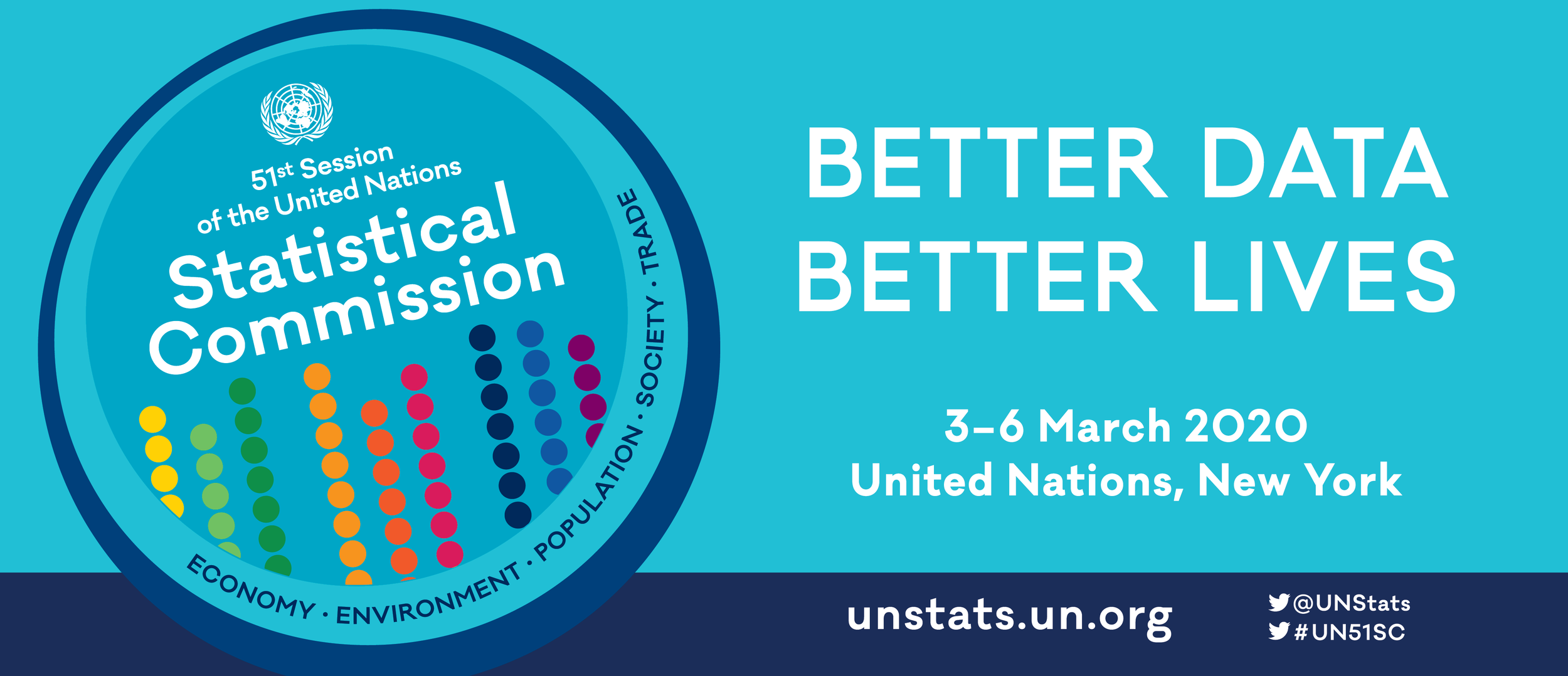Navigating New Roles, Technology, and Ecosystems
Reflections on the 51st UN Statistical Commission
Written by Alyson Marks
As 120+ National Statisticians and hundreds of stakeholders across the globe convened at the UN for the 51st session of the Statistical Commission last week, how to manage the increasing breadth of new data and technologies, new responsibilities, and the changing data ecosystem was at the forefront of the conversation.
Source: UN Statistical Commission
New Technologies
With the 2020 census underway, we are still facing significant challenges of coverage, data quality, and timeliness, but the Commission spotlighted how many National Statistics Offices (NSOs) and UN agencies are increasingly turning to new technologies, such as georeferenced data (e.g. satellite imagery and remote sensing), big data, and citizen-generated data to tackle these issues head-on. For example, during the Commission, UN Population Fund (UNFPA) launched the Population Data Thematic Fund to expand the scope and quality of modern census and registry data and to increase the use of geo-referenced population data to accelerate progress towards the SDGs.
Other new initiatives included Rwanda’s NSO signing an MOU with the UN Economic Commission for Africa (UNECA) to host the first big data regional hub for Africa. The hub will be set up at Rwanda’s National Institute of Statistics (NISR) Training Center and Data Science Campus.
The Commission also featured countries, like Finland, who are increasingly taking advantage of now-casting and forecasting methods, which leverage existing data sources to make projections about related variables, to fill gaps when traditional statistics are not timely enough.
Time-use surveys, which are critical to measuring gender parities, quality of life, household work, and more are also being revamped. For instance, the Australian Bureau of Statistics discussed how they have shifted to using e-diaries and Mongolia’s NSO now uses a smartphone application for respondents.
Source: Alyson Marks/SDSN TReNDS
Stewardship and Coordination
The issue of data stewardship and governance was also a key focus, as the role of the NSO continues to evolve within the new data ecosystem. With more data than ever, NSOs are increasingly being confronted with rising demands to modernize, including integrating new data and statistics into the production process, expanding the provision of data, and managing third-party partnerships.
In the side event, “Data Stewardship – A Solution for Official Statistics’ Predicament,” TReNDS member, Lisa Bersales, highlighted many of the findings from Counting on the World to Act and stressed the importance of an empowered Chief Statistician to allow for NSOs to move from their traditional role of producers of official statistics to curators of different sources of data and coordinators of partners within the new data ecosystem. In this new stewardship role, NSOs should be tasked with setting standards and guidelines for the collection, management, and use of government data and ensuring that government agencies adopt common capabilities.
As Bersales underscored, the challenge moving forward will be how NSOs actualize this new role, as there are still significant capacity and resourcing issues.
Country Ownership
In line with the focus on data stewardship, several sessions emphasized the importance of national ownership of initiatives and countries being in the “driver’s seat” to push the agenda forward.
This thinking was especially pertinent during the Data For Now side event, which included updates from several of the pilot countries on their progress to date. Luis Gonzalez Morales, Chief Web Development and Data Visualization at the UN Statistics Division (UNSD) stressed that the initiative is being driven by country demand and priorities, and this will be the only way to ensure sustainability and scalability. Moreover, countries need to feel that they have ownership of the initiatives, so they can mobilize the necessary resources and political will.
The need for actions at the national level was also highlighted during a side event on open data, which included TReNDS members Francesca Perucci and Shaida Badiee. While open data can be a means for building sound data governance in countries, representatives from NSOs, including Jamaica, Palestine, and Mongolia, all reiterated the importance of the NSO leading open data initiatives to ensure data quality and to safeguard against misuse.
Moving Forward
With the influx of data and new technologies showing no signs of subsiding anytime soon, it was clear from the Statistical Commission that NSOs are taking their new responsibilities seriously and there is a genuine enthusiasm to use new resources and technologies to help fill the critical data gaps. The question moving forward is how to ensure effective data stewardship and governance within the new ecosystem.


